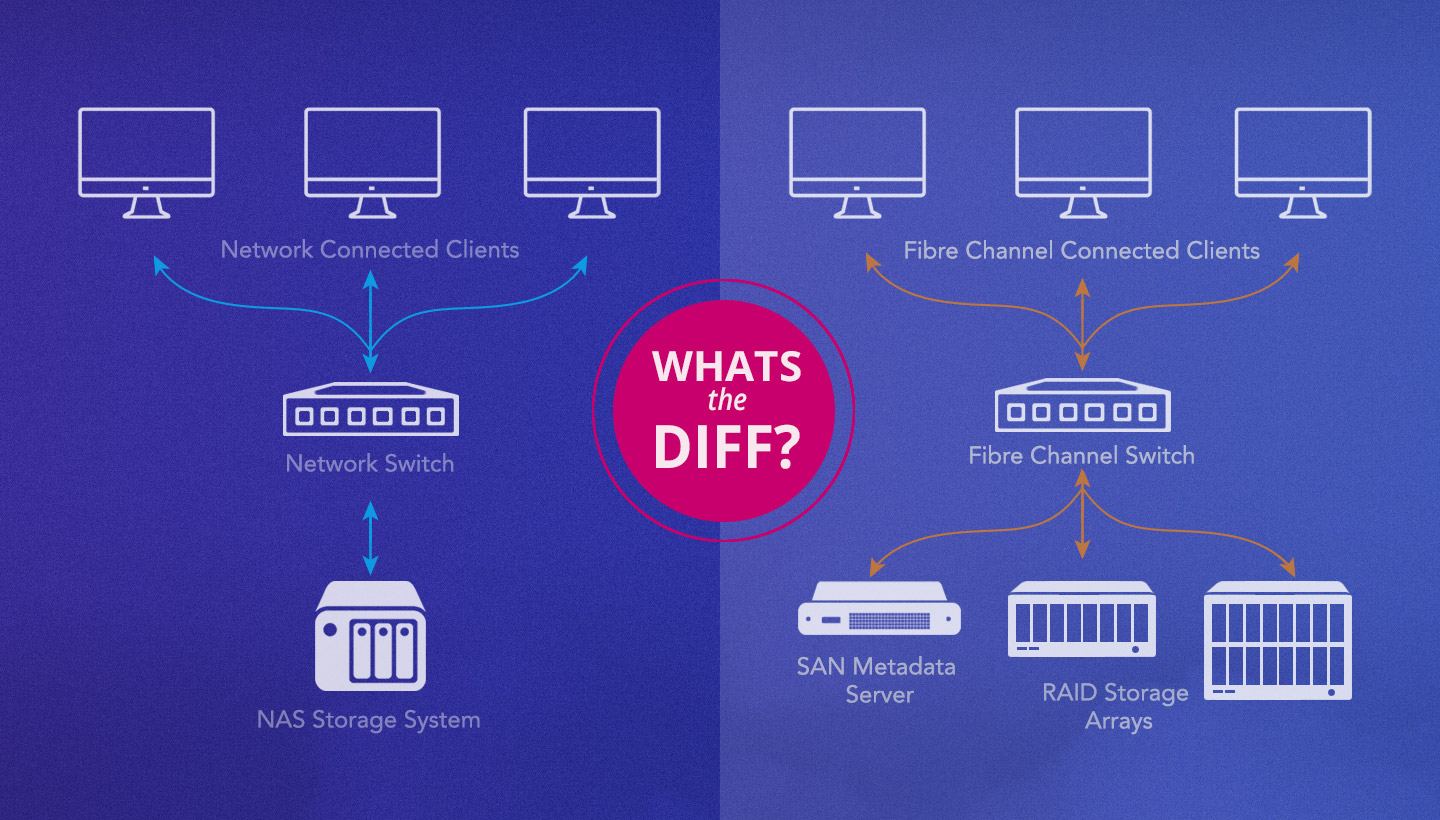Why use SAN over NAS?

Why choose a SAN over a NAS
However, NAS is Ethernet-based, while SAN can use Ethernet and Fibre Channel. In addition, while SAN focuses on high performance and low latency, NAS focuses on ease of use, manageability, scalability, and lower total cost of ownership (TCO).
What is the advantage of SAN when compared to NAS
SAN gives high performance in high-speedefforthigh-speed traffic systems. While NAS is not suitable for that environment which has high speed traffic. SAN needs more time and efforts in organizing and controlling. NAS is easy to manage and provides a simple interface for organizing and controlling.
Which is faster SAN or NAS
Enterprise/large businesses typically have SAN since it's much faster, more scalable and available for all business-critical applications than NAS. For instance, Oracle and Microsoft SQL database, which are I/O-intensive applications, require the performance only SAN can provide.
How is SAN different from NAS
NAS is a single storage device that serves files over Ethernet and is relatively inexpensive and easy to set up, while a SAN is a tightly coupled network of multiple devices that is more expensive and complex to set up and manage.
Do I need a SAN or NAS
SANs are highly scalable because more block-level storage devices can be added over time without affecting network integrity. Speed and performance: With their shared pool of storage, SANs are low-latency solutions, while NAS systems often have slower throughput when retrieving shared files.
What is the disadvantage of NAS
As the number of users increases, a large increase in traffic over the LAN may slow performance. Certain uses — such as video editing — may exacerbate performance issues because of large files sizes.
What are three advantages of SAN
The advantages of a SANReduces LAN bandwidth problems. A key benefit of SANs is bandwidth improvement.Improved data security. Data security is paramount for every business.Responsive backup.Increased scalability.Reliable disaster recovery.
Is SAN cheaper than NAS
Although a high-end NAS will cost more than an entry-level SAN, in general NAS is less expensive to purchase and maintain. NAS devices are considered appliances and have fewer hardware and software management components than a storage area network.
Do I need NAS or SAN
If you need storage for backup or data sharing within small teams – you are better off with a NAS. If you require high input/output speeds, you have servers and applications that need to communicate with each other – hire a professional to build you a SAN.
What are the advantages of SAN storage
The SAN eliminates the traditional dedicated connection between a network file server and storage — and the concept that the server effectively owns and manages the storage devices — eliminating bandwidth bottlenecks. A SAN eliminates single points of failure to enhance storage reliability and availability.
Can a SAN and NAS be combined
Despite their differences, SAN and NAS are not mutually exclusive, and may be combined as a SAN-NAS hybrid, offering both file-level protocols (NAS) and block-level protocols (SAN) from the same system.
Can I use Synology as SAN
Synology SAN storage is certified for major virtualization solutions including VMware® vSphere™, Microsoft® Windows Server®, Citrix® XenServer™, and OpenStack Cinder.
What are the advantages of SAN
A SAN can offer the following benefits:Improved application availability.Better application performance.Remote site data transfer and vaulting.Simple centralized management.
What is the disadvantage of SAN over DAS and NAS
What Are the Disadvantages of SAN Costs: The cost of setting up and maintaining the fibre infrastructure to support a SAN can be significant. Redundant, high-performance storage is costly, and it can take some time before you see a return on investment.
In which case use of SAN is best
SAN use cases
Low-latency and scalability make SANs the preferred choice in these cases: Video editing: Large files require high throughput and low-latency. SANs can connect directly to the video editing desktop client, without the need for an extra server layer, offering high-performance capabilities.
Why is SAN more secure
Data Security: Using a SAN, data protection algorithms are consistent. Whenever you need it, you have access to accurate copies of any data on it. Additionally, should the LAN become compromised, your data would be secure since it is stored on a separate network.
What is the advantage of SAN
The SAN eliminates the traditional dedicated connection between a network file server and storage — and the concept that the server effectively owns and manages the storage devices — eliminating bandwidth bottlenecks. A SAN eliminates single points of failure to enhance storage reliability and availability.
Is Synology a SAN or NAS
Synology SAN storage is certified for major virtualization solutions including VMware® vSphere™, Microsoft® Windows Server®, Citrix® XenServer™, and OpenStack Cinder.



